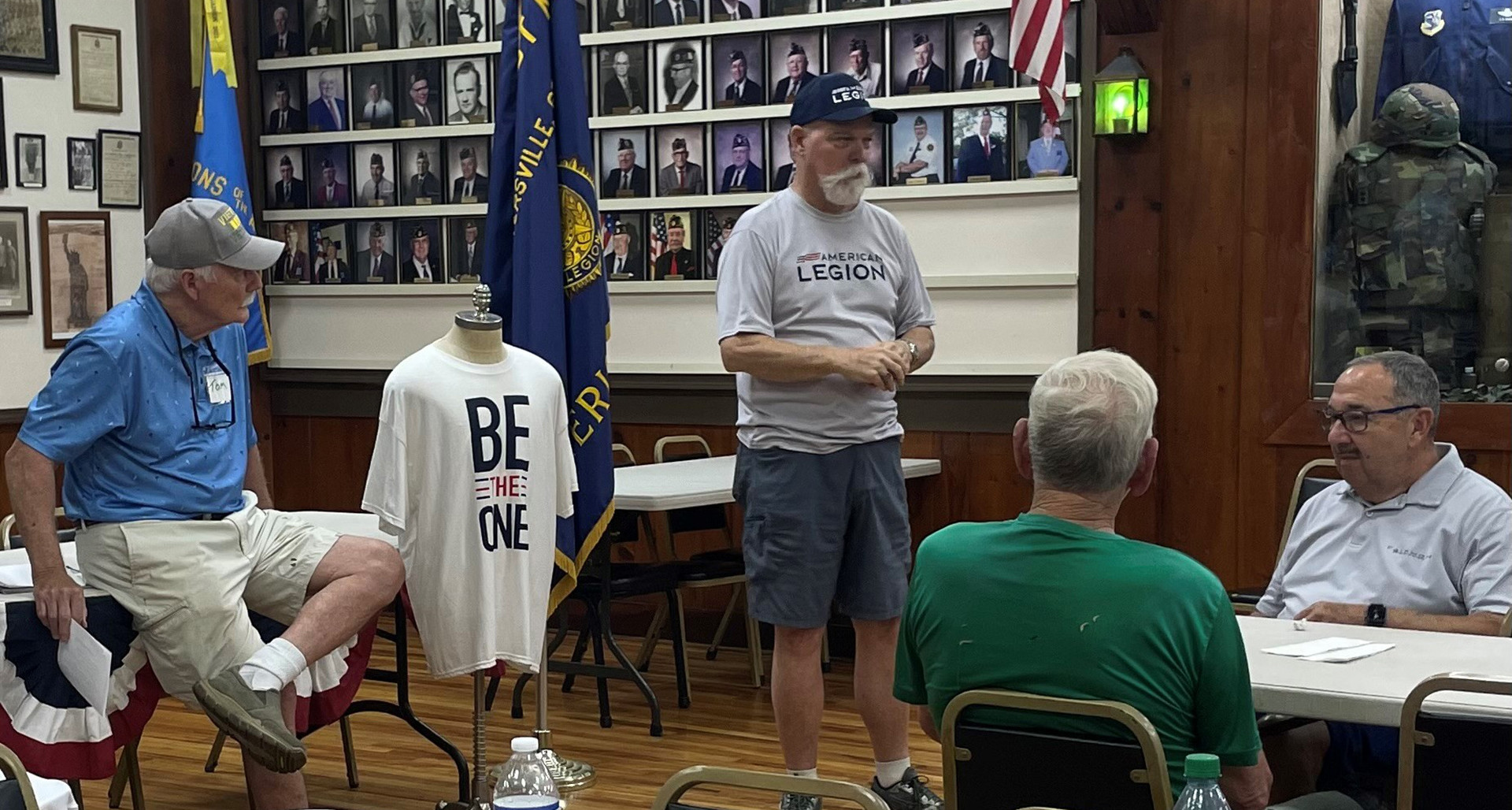
A Georgia post hosts twice-weekly sessions for spreading awareness about Be the One, providing counseling and hope, and helping veterans with their benefits.
Dr. Bob Poston, an Army combat veteran during the Vietnam War, may have shrapnel in his stomach but he has a heart of gold.
Since 2010, Poston — or Dr. Bob as everyone calls the Bronze Star and Purple Heart recipient — helps his fellow veterans with their VA benefits claims while also providing options for mental health treatment for those who need it.
His tireless journey began when he learned the claims process first-hand. After working through a half-dozen appeals, he received his 100% disability rating.
“I could afford to just do nothing but help vets the rest of my life,” recalled the retired major. “So that's what I do every day, including Sundays when I teach a class for women about how to support their military husbands who have PTSD.”
Poston provides his services free for veterans, including twice-weekly events at American Legion Post 42 in Cartersville, Ga. During each session he talks about an issue related to veterans benefits, encourages them to see him for assistance and provides other guidance sought by those in attendance.
The post welcomed Poston’s Vet to Vets organization with open arms. And they’ve parlayed his presentations into regular discussions about Be the One, the Legion’s primary mission to prevent veterans dying of suicide. Since Poston’s meetings are open to any veteran, the post can deliver the Be the One mission to more people.
Michael Schwartz, a retired Navy senior chief petty officer, is the senior vice commander for the Department of Georgia and was commander of Post 42 when Vet to Vets reached out about five years ago.
“This was even before Be the One, but our post has always been hyper aware of the need, helping homeless veterans as well,” he said. “We didn’t think they were getting the help they needed so we saw this as another avenue a homeless vet could come to get help with their claims, PTSD and more.”
Now that Be the One is gaining momentum, Post 42 has elevated its presence during these meetings.
“Be the One is a very important program for us,” said Schwartz, who also is an ordained minister. “We preach that gospel. You can just see that they want to belong. That’s one of the things The American Legion is so great at — reintroducing veterans to the camaraderie that they felt when they were on active duty, serving the nation. There’s a melding together of brotherhood and sisterhood.”
Schwartz opened a meeting in early September by sharing the benefits of Be the One.
“Be the One is not just a sales pitch, it is a way of life for The American Legion,” he said. “We instill that in our members here. Even if you are not a member of our post, you can be the one to reach out to another veteran. Then it escalates from there with that veteran reaching out to another. We share that message with all the vets.”
Case in point: He told the participants they were all demonstrating what it takes to be the one.
“Be the One is being the one to ask the tough question,” he said. “Ask a veteran how they are doing, and if they respond negatively, ask them if they are thinking of hurting themselves.”
After the introductions, the attendees were divided into small groups where they would be able to bond, share and delve deeper into offering support to those who need it.
Schwartz has benefitted personally from Poston’s services with conditions such as tinnitus and throat surgeries. “Once I saw what was going on, it really touched my heart.”
He is far from the only one. Poston’s twice-weekly meetings at the post are attended by at least 50 people.
Kenneth Coomer, a Marine Corps veteran during the Vietnam era, is among them.
Family members and friends of Coomer recognized his severe post-traumatic stress disorder long before he came to grips with it. They gave him Vet to Vets business cards and encouraged him to attend a meeting.
Eventually Coomer took their advice, which sent him on a new path.
“During those therapy sessions, things came out that happened when I was in the Marine Corps and I hadn’t told anybody about them. It was buried deep.”
Poston immediately got Coomer into counseling when he recognized the severity of the PTSD. He was still traumatized by an experience one night outside Camp Lejeune, N.C., in 1972 when civilians forced Coomer and his fellow Marines off the road. The civilians then ordered them to the ground, pulled out their guns and threatened to kill them.
Fortunately, a couple of cars passed by and the civilians left.
“All four of us thought we were dead men that night,” he recalled. “I buried it. I didn’t tell anybody.”
The effects continued for decades. Coomer received 35 speeding tickets and had his license revoked numerous times. Why? Every time he drove, he continually looked back in the rearview mirror.
“My trigger is someone in my rearview mirror, no matter who it is,” he said. “My wife tells me to stop looking in the rearview mirror. But I can’t.”
Now, decades later, he understands the source of his PTSD, thanks to therapy.
“It’s like turning the light on,” he explains. “I’m living in the light now, not in the dark.”
Now, Coomer carries the Be the One mission as he moderates the Vet to Vets small groups at his Legion post.
“You can look at them now,” he says of the participants. “They are in the dark now. In a little while they are going to move from the dark to the light.”
- Be the One

